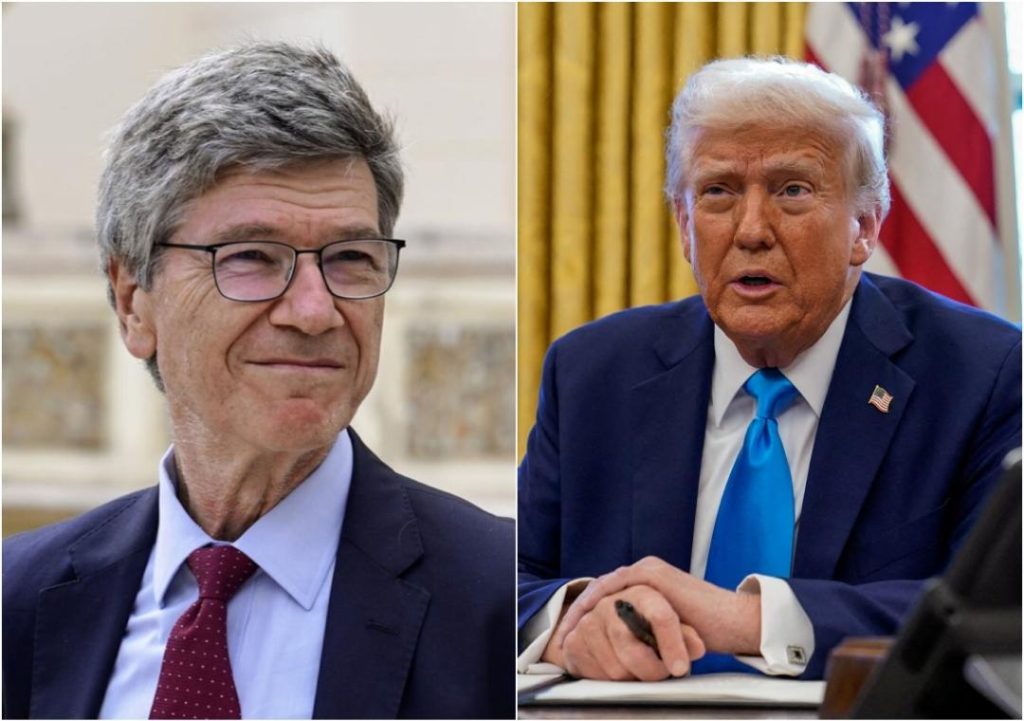
US Politicians Don’t Care at All About India, Please Understand This: Top Economist Sachs
In a recent interview, American economist Jeffrey Sachs made some scathing remarks about the current state of US-India relations and the implications of US President Donald Trump’s tariffs. According to Sachs, the US politicians are completely indifferent to India’s interests and concerns. This statement comes as a shock to many, given the growing importance of India as a strategic partner for the US in the Asia-Pacific region.
Sachs, a renowned economist and director of the Center for Sustainable Development at Columbia University, expressed his views in an interview with News18. In his remarks, he called Donald Trump’s tariffs “unconstitutional,” stating that they are damaging the global economy and harming American businesses. However, what is more interesting is his take on India’s role in the US-China rivalry and his views on the Quad alliance.
India is a “Great Power” with an “Independent Standing in the World”
Sachs emphasized that India is a significant player in the global arena, with its own independent standing and interests. He urged India not to get entangled in the US-China rivalry, saying that siding with the US in the Quad alliance would not provide long-term security benefits. Instead, Sachs advocated for India to forge its own path, leveraging its growing economic and military capabilities to shape its own destiny.
This perspective is particularly noteworthy, given the increasing tensions between the US and China, as well as the growing importance of the Quad alliance. The Quad, comprising the US, Japan, Australia, and India, is seen as a strategic partnership aimed at countering China’s growing influence in the region. However, Sachs’ remarks suggest that India should not be seen as simply a pawn in the US-China rivalry, but rather as a powerful nation with its own interests and priorities.
US Politicians Don’t Care About India’s Interests
Sachs’ statement that US politicians don’t care about India’s interests is a stark reminder of the often-neglected reality of US-India relations. While there have been efforts to strengthen bilateral ties, particularly during the Obama administration, the relationship between the two nations has often been marked by a lack of empathy and understanding.
This is particularly evident in the context of trade and commerce. Despite being one of the fastest-growing major economies in the world, India has long been frustrated by the US’s refusal to grant it a permanent seat on the Nuclear Suppliers Group (NSG) and its failure to address India’s concerns on trade and intellectual property.
Moreover, India has been critical of the US’s tariffs on steel and aluminum, which have disproportionately affected Indian exports. The US’s withdrawal from the Intermediate-Range Nuclear Forces Treaty (INF) has also raised concerns in India, given its implications for regional security.
What India Should Do
Sachs’ remarks offer a valuable perspective for India to re-evaluate its relationship with the US. Rather than simply following the US’s lead, India should focus on building its own economic and military capabilities to ensure its long-term security and prosperity.
India should also pursue a more nuanced and independent foreign policy, leveraging its relationships with other nations, including China, to advance its interests. This would involve engaging with China on issues of common concern, such as climate change and global governance, while also maintaining a strong relationship with the US and other allies.
Conclusion
Jeffrey Sachs’ remarks offer a candid assessment of the current state of US-India relations. While there are areas of cooperation, such as counter-terrorism and defense, the relationship is often marked by a lack of empathy and understanding. India should take heed of Sachs’ advice and focus on building its own capabilities and pursuing an independent foreign policy.
In the context of the Quad alliance, India should not be seen as simply a pawn in the US-China rivalry. Instead, it should leverage its growing influence to shape its own destiny and advance its interests. By doing so, India can emerge as a powerful and independent nation, with a significant role to play in shaping the global agenda.
Source:






